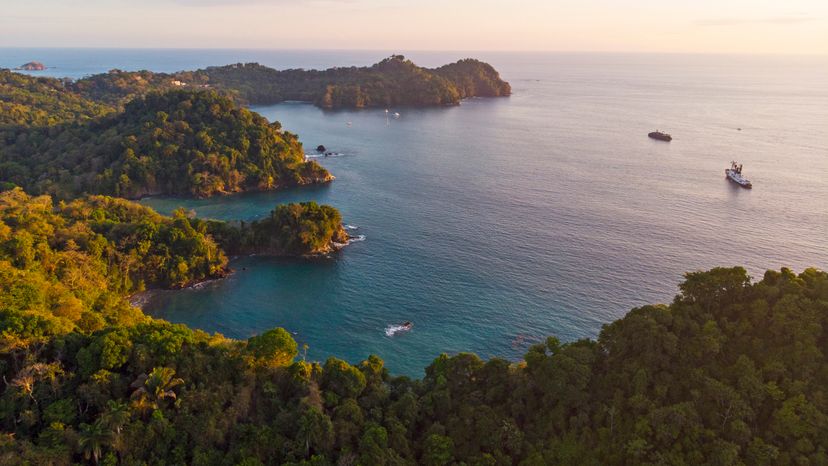Costa Rica, known for its stunning natural beauty and biodiversity, has long been a popular destination for travelers. However, like any other country, it is essential to be aware of the safety situation and take necessary precautions while exploring this Central American gem.
Global Peace Index Ranking
According to the Global Peace Index, Costa Rica is considered the safest country in Latin America. This ranking reflects the country's low levels of violence and high political stability. It is worth noting that Costa Rica ranks higher in safety than the United States itself, which underscores the country's commitment to maintaining a secure environment for tourists.
Crime in Costa Rica
While Costa Rica is generally safe for travelers, it is not entirely free from crime. Petty theft, such as pickpocketing and purse snatching, can occur, especially in popular tourist areas. It is crucial to remain vigilant and take precautions to protect your belongings.
Safety Tips to Avoid Petty Crime
- Avoid isolated areas, especially at night and in big cities. Stay where there are people around.
- Do not wear flashy items or display expensive jewelry to avoid attracting unnecessary attention.
- Keep your belongings secure at all times and avoid leaving them unattended, particularly on beaches or in public areas.
- Be cautious when using public transportation, as theft is common. Keep your bag containing valuables and identification on your lap.
- Take authorized taxis and pay attention to the meter to avoid scams. Keep your belongings close to you during the ride.
- Stick to marked trails when hiking and avoid venturing off into unknown areas. Hire a guide if possible for safety and to enhance your experience.
- Lock up valuables in your accommodation's safe or lockbox. Avoid carrying large sums of cash or unnecessary valuables.
- Be cautious in certain areas, such as San Jose at night, and avoid known high-risk areas for theft and drug activity.
Violent Crime and Drug Trafficking
While violent crime, including murders and armed robberies, occurs in Costa Rica, most incidents are related to drug trafficking activities. Certain provinces, such as Alajuela, Limon, Puntarenas, and San Jose, are more affected by these crimes. It is essential to exercise caution and be aware of your surroundings, especially in these areas.
Fraud and Scams
Credit card and ATM fraud can occur in Costa Rica, so it is crucial to be cautious when using your cards. Pay close attention when others handle your cards, use ATMs in well-lit public areas, and check for any unauthorized transactions on your account statements. Beware of scams, such as the taxi scam or "cheap tour" scam, and only use authorized companies when booking tours.
Natural Hazards and Adventure Tourism
Costa Rica is renowned for its adventure tourism, offering activities like white-water rafting, scuba diving, and ziplining. However, it is essential to be well-prepared and follow safety guidelines when participating in these activities. Weather conditions can change rapidly, even in summer, and it is advisable to hire knowledgeable guides and ensure you have suitable travel insurance that covers adventure activities.
Women's Safety
Women traveling alone may be subject to some forms of harassment and verbal abuse. Incidents of sexual assault against foreigners have occurred in certain areas, such as beach resorts and taxis in San Jose. It is important for women travelers to be cautious, avoid walking alone at night, and trust their instincts. Researching safe accommodations and transportation options can also contribute to a smoother travel experience.
Demonstrations and Mass Gatherings
Demonstrations can take place in Costa Rica, particularly in San Jose. While peaceful demonstrations are common, they can escalate into violence unexpectedly. It is advisable to avoid areas where demonstrations are taking place, follow instructions from local authorities, and stay informed through local media.
Water Activities and Beach Safety
Costa Rica's coastal waters can be dangerous, with the presence of riptides. It is crucial to exercise caution when swimming and only swim in designated areas. Very few beaches have lifeguards, and there may be no warning signs for dangerous conditions. Consult locals and tour operators for information on safe swimming areas and monitor weather warnings.
